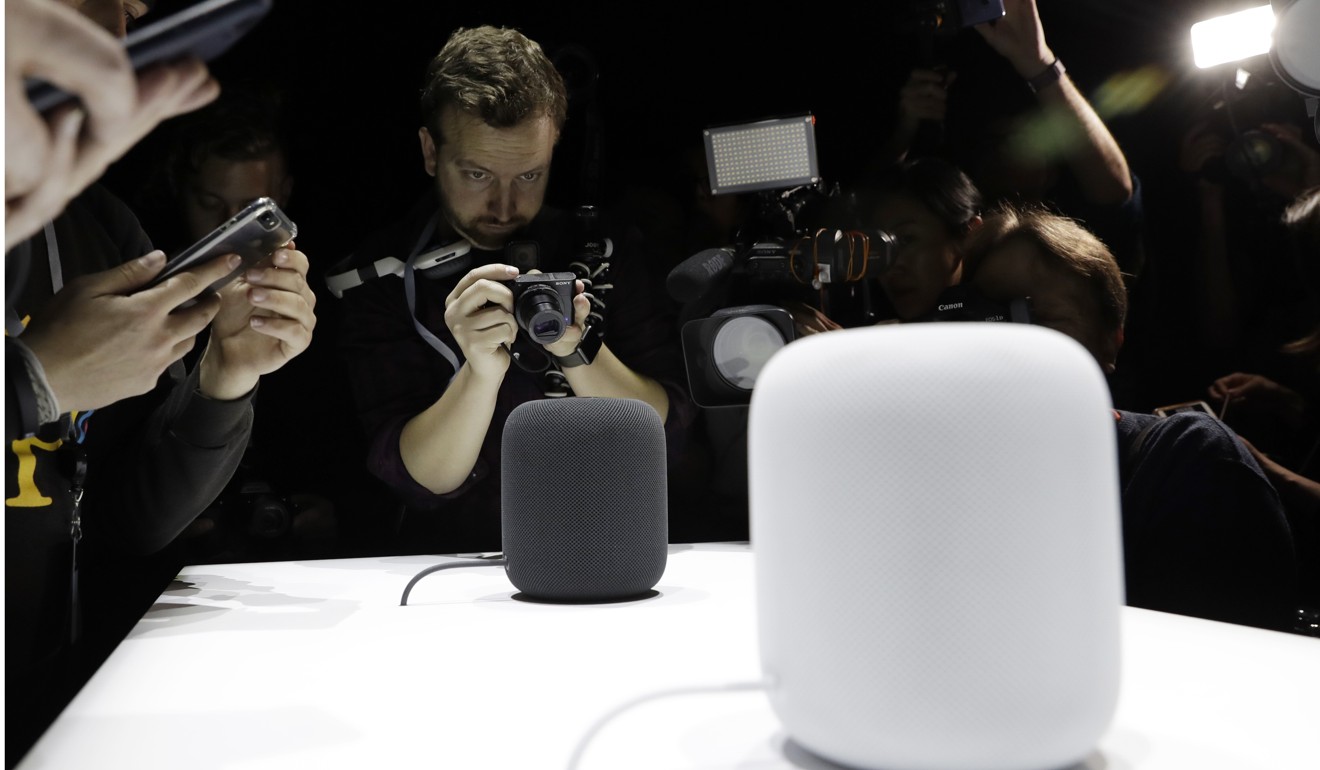
Will 2018 be the year of the smart speaker in China?
Major Chinese internet companies with a large ecosystem of content and services, such as Baidu and Alibaba, have a big advantage in driving demand for smart speakers across the country
If their exhibition on the floor of the CES trade show in Las Vegas proved a trend, then China’s technology giants are betting smart speakers to be the next big thing in the consumer electronics market on the mainland.
E-commerce companies Alibaba Group Holding and JD.com, along with internet search service Baidu, took the wraps off their latest smart speakers at the world’s biggest annual consumer technology event last week.
While sales of smart speakers are growing fast in the United States, demand in China remains nascent.
Smart speakers are often advertised as voice-activated virtual assistants for the home that can help users hail a ride, order pizza, provide weather updates and even order a gift online.
For the major Chinese internet companies, smart speakers not only help gather data for things like user preferences and speech patterns, it also ensures that users stay within their ecosystem of services – especially useful to e-commerce service providers like JD.com and Alibaba.
Antonio Wang, the associate vice-president at IDC China’s client system research, predicted smart speakers to be China’s next big consumer electronics trend, with the country poised to swiftly become the second-largest market for these devices behind the US this year.
“2016 was the year of drones, and last year we saw a boom in augmented and virtual reality,” said Wang. “2018 is going to be the year of smart speakers.”
He pointed out that China has been late to embrace smart speakers because “consumers are still used to doing many things via mobile and social networks”.
“In addition, China’s ecosystem for smart speakers is not yet as mature and comprehensive as that in the US,” he said.
Online retailer JD.com was an early player in the domestic market for smart speakers with its LingLong DingDong, a device launched in 2016 through its joint venture with artificial intelligence company iFlytek.
At CES last week, Baidu unveiled three voice-activated smart speaker models with different core functions. One model serves as lamp, another a ceiling-mounted projector and the third model has a display – all of which can be integrated with a user’s other smart home devices.
JD.com introduced a smart speaker with an eight-inch screen dubbed the DingDong Play, which enables users to buy items directly from the company’s online retail platform. The device also features a camera, facial recognition system and video-calling function.
Alibaba, which owns the South China Morning Post, last week announced a tie-up with semiconductor company MediaTek for an open-connectivity protocol. With that system, other smart devices can automatically pair with Alibaba’s Tmall Genie X1 smart speaker and future Tmall Genie models.
Research firm Canalys forecast smart speaker shipments in China to reach 4.4 million units this year, which still pales in comparison with estimated US shipments of 38.4 million in the same period.
Canalys analyst Lucio Chen said demand for smart speakers, which have been around in China since 2015, has remained low because “there are no vendors with strong brand stickiness”.
During China’s massive Singles’ Day shopping festival on November 11 last year, Alibaba cut the price on its Tmall Genie X1 smart speaker by 80 per cent to 99 yuan (US$15.32), down from 499 yuan.
That and promotions from other smart speaker brands led to a surge in sales of these devices in the fourth quarter of last year, according to Chen.
Canalys also predicted more smart speakers to be launched in China this year will come equipped with a display and deliver various other features.
“Consumers are very used to having a screen on their mobile devices. Smart speakers with screens will encourage consumers to adopt this product category more quickly as it unleashes an array of functions, such as viewing pictures and making video calls,” said Chen.
“Smart speakers with a single function, such as music streaming, will see growth slow as consumers expect more functionality.”
That could potentially impact the launch in China of Apple’s HomePod, a smart speaker without a screen that was designed to work with Apple Music subscription. In November, Apple said the wide release of the HomePod, which the company introduced in June last year with a price tag of US$349, has been delayed. No timetable was given.
Smart speaker suppliers with an ecosystem of different content providers are expected to gain market share in China. The likes of Baidu and Alibaba, which already have a strong content ecosystem, are likely to drive sales for their smart speakers from their existing user base.
“We do expect more [smart speaker] adoption in China as a result of vendor-side push this year,” said Bryan Ma, the vice-president of client devices research at IDC Asia-Pacific.


